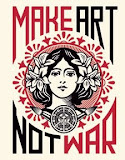
"The music on this cd is incredible in its intensity and power - and in its honesty. The band centers around a father, Gojma (Antal Kovács); and his son, Anti (Antal Kovács, Jr.). Gojma's raw, fiery voice contrasts nicely with the smother style of his son - and Anti's guitar work is beautiful. There is a strong Flamenco influence that can be heard in Anti's playing - Spain being just one of the stops on the Roma Road. These two central figures are joined by Joco (József Balogh) on vocals and guitar; Csika (Zsigmond Rafael) on milk churn (that's right...) and bass vocals; Kornél Horváth on an amazing array of percussives (he also offers some percussion-related vocalizing, akin to that heard in recordings of tabla players from India); Zoli (Zoltán Orosz) on accordion; and Laci (Lászlo Molnár) on double-bass. Together they make some of the most infectious, honest and moving music you're likely to hear anywhere.
The songs here deal with life - plain, simple and complicated. There are songs of love and loneliness, of relations with neighbors, of the difficulties in finding suitable employment (who can't relate to that...?), and more. The melodies are beautiful, the playing throughout is superb. This recording would be a great introduction to the music of the Romany Road - check it out!"
02 Ando Foro
03 Kanak Ratyi
04 Kon Ka Mel Pe
05 Kanak Tu Ternyi Szanasz
06 Te Szi Tuke
07 Ustyi Tete
08 Bulhoj Kado Paji
09 Pujari Szomasz
10 Parastune
11 Del O Brisind
12 Lina
13 Deta Devla
Link
pass: bluesmen-worldmusic.blogspot.com
Címkék: Gipsy, Hungarian, Romano Drom

As the result of its very complex nationality relations, Transylvania has become the meeting point of very diverse peasant cultures (Hungarian, Romanian, and German) and so, its folk music is unique too. The instrumental music traditions were preserved the most by the gypsies in Transylvania and Moldva. The art of beeing a musician descended from father to son for centurise and this is how those dynasties were born that served and shaped the music needs of village people. Today, however there is less and less possibility for them to play their music, as in many places people do not insist on the traditional, live music. Therfore precious this compilation, because all the bands you can hear on this album know and play such music pieces that originate from the era before the urbanisation of village life.
The recordings for this CD were made by Ferenc Kiss between 30 May and 1 June 1997 in Csíkszereda, Romania during the Primates’ Meeting held there. While editing the material, the intention was to give a complex, yet varied picture of that unbelievably colourful culture which will sink into oblivion very soon also in this part of the world.
01. Fetioreste des (Román férfi tánc / Rumanian men's dance)
02. Palatkai román táncok / Rumanian dances from Palatka
03. Csingerálás / Gypsy dance
04. Bodonkúti táncok / Dances from Bodonkút
05. Joc Batrinesc din Barai
06. Fetioreste des (Román férfitánc / Rumanian men's dance)
07. "Clock"
08. Sűrű és ritka tempó / Hungarian men's dances: fast and slow
09. Csingerálás / Gypsy dance
10. Szökős / Leaping dance
11. "Medvés" / "Bear dance"
12. "Rókatánc" / "Fox dance"
13. Kerekes
14. Botosánka
15. "Gergelytánc" / "Gregory dance"
16. Batuta
17. Verbunk / Recruting dance
18. Jewish dance
19. Sebes forduló / Quick turning-dance
20. Lassú és sebes magyaros, "medvés"
21. Ficsoreszka és sebes kalup / Rumanian men's dance
Link

They're not likely to be found singing "Tumbling Tumbleweeds," even though that plant hails from their country, but the Tuvans are having an impact on the rest of the world when it comes to their music. Tuvan throat-singing, a fascinating style in which a single vocalist can produce a haunting four-part harmony, has turned up on Ry Cooder's film soundtracks and as part of the style of bluesman Paul "Earthquake" Pena, while concerts by groups such as Huun-Huur-Tu continue to be extremely popular. This compilation, produced and annotated by Ralph Leighton, brings together traditional and contemporary Tuvan music, opening with a demonstrative medley from Kongar-Ool Ondar and closing with a duet between Ondar and Pena.
01. Kongar-Ool Ondar - Medley Of Throat Singing Styles Accompanied By Doshpuulur
02. Aldyn-Ool Sevek - Demonstration Of Kargyraa
03. Oleg Kuular - Collection Of Hoomei Styles
04. Oorzhak Khunashtaar-Ool - Bolur-Daa-Bol, Bolbas-Daa-Bol
05. Oorzhak Khunashtaar-Ool - Eder-Daa-Bol, Etpes-Daa-Bol
06. Bilchi-Maa Davaa - Hoomei Lullaby
07. Shaktar Shulban - Demonstration Of Sygyt And Kargyraa
08. Kongar-Ool Ondar - Dymzhuktaar
09. Kaigal-Ool Khovalyg - Fantasy On The Igil
10. Kongar-Ool Ondar - Fast Words
11. Kongar-Ool Ondar - Shamanic Prayer For Richard Feynman
12. Nadezhda Kuular And The Tuvan State Ensemble Sayani - Teve Haia (Camel Rock)
13. Sainkho Nahchylak - Bai-Laa Taigam
14. Mikhail Alperin, Et Al. - Prayer I
15. Huun-Huur-Tu, Bulgarian Women's Choir Angelite - Fly, Fly My Sadness
16. Oleg Kuular, Michail Alperin, Et Al. - In The Cathedral
17. Oleg Kuular, Michail Alperin, Et Al. - Tuvan Industrial
18. Albert Kubezin And Yat-Kha - Yenisei-Punk
19. Paul 'earthquake' Pena - Kargyraa Moan
20. Kongar-Ool Ondar And Paul 'earthquake' Pena - What You Talkin' About
Part 1.
Part 2.
Címkék: Folk, Throat singing, Tuva, VA
























